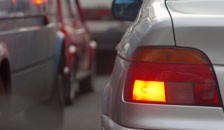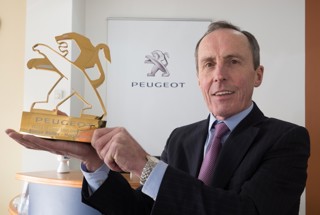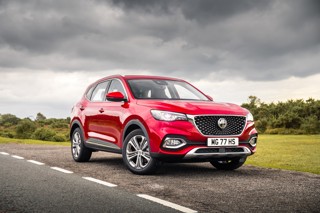Local Government leaders have called on Central Government to create a £1.5 billion vehicle scrappage scheme that could remove nearly half a million older polluting vehicles off UK roads and incentivise the adoption of new low-emission transport.
The Mayor of London Sadiq Khan announced today that he would almost double the amount of funding pledged to a vehicle scrappage scheme ahead of the city’s Ultra Low Emission Zone – taking the total to £48 million.
Designed to help motorists buy low-emissions cars and vans ahead of the ULEZ introduction in central London in six weeks’ time, the additional funding for the Mayor's ‘scrap for cash’ scheme – an extension of £23m already pledged – was announced at this week’s #LoveCleanAir Summit.
News of the extra funding came as the UK100 – a network of local government leaders – prepares to urge Government to establish a £1.5 billion government-funded vehicle upgrade programme which could pay for nearly half a million (488,647) older polluting cars, vans and buses to be taken off the roads and incentivise people and businesses into using low-emission vehicles and public transport.
Full details of the new proposed £25m car scrappage fund for Londoners will be launched later this year.
Khan said: “Our country’s filthy air is a national disgrace that shortens lives, damages our lungs, and severely impacts our NHS.
“City leaders across the country are united in raising the alarm about the dangers posed by poor air quality.
“Here in London we have worked tirelessly to clean-up the bus and taxi fleet, encourage clean air innovation and establish the largest air quality monitoring network of any major world city.
“Now, with seven weeks to go until the introduction of the 24-hour seven-day-a-week Ultra Low Emission Zone in central London, I’m announcing plans to help motorists on low incomes, as well as micro-businesses, to scrap their older, more polluting vehicles.
“However, Ministers must now show they can match my commitment. If we’re going to tackle the health crisis and social injustice caused by air pollution it is vital and only fair that a national vehicle scrappage scheme is funded and supported by the government.
“I know Michael Gove and Matt Hancock both share my commitment to clean up our filthy air and protect the health of future generations – but for this to happen they must recognise the scale of this issue, dip in their pockets and urgently match the ambition of our city leaders.”
Khan’s has joined with representatives from the UK100 for face-to face talks with Government ministers at the National Clean Air Summit.
Leaders will call on the Government to deliver an urgently needed national vehicle upgrade fund and to do more to tackle the country’s air quality crisis.
Attendees at the National Clean Air Summit, organised in partnership with UK100 and Unicef UK, will discuss their concerns directly with the Environment Secretary, Michael Gove, and the Health Secretary, Matthew Hancock.
Khan will be joined by city leaders including the Mayor of Greater Manchester, Andy Burnham, Mayor of the Liverpool City Region, Steve Rotheram, Mayor of the West of England Jim Bowles, and Mayor of the Sheffield City Region, Dan Jarvis, to ask for greater Government investment in clean air, the adoption of World Health Organisation air pollution recommended limits and the establishment of a £1.5 billion government-funded vehicle upgrade programme.
The Mayor of Greater Manchester, Andy Burnham, said: “Air pollution is linked to the equivalent of 1,200 early deaths each year in Greater Manchester alone.
“It’s our largest environmental risk to public health which needs to be tackled as quickly as possible. Greater Manchester’s ten local authorities are showing leadership in developing a Clean Air Plan to tackle nitrogen dioxide roadside emissions for a population of nearly three million people across 500 square miles.
“But we urgently need Government to guarantee the right level of powers and funding to help us tackle the scale of the problem without damaging our local economies.
“That includes adequate funding so we can help businesses make the change to cleaner vehicles. Without this support we won’t be able to do what’s required to clean up our air, keep our region an attractive, sustainable and healthy place to live and work and – ultimately – save lives.
“And it’s not just about reducing nitrogen dioxide – we’re calling on government to grasp the opportunity with the upcoming Environment Bill to put in place world-leading legislation for clean air including carbon, particulates and other pollutants.”


















Login to comment
Comments
No comments have been made yet.